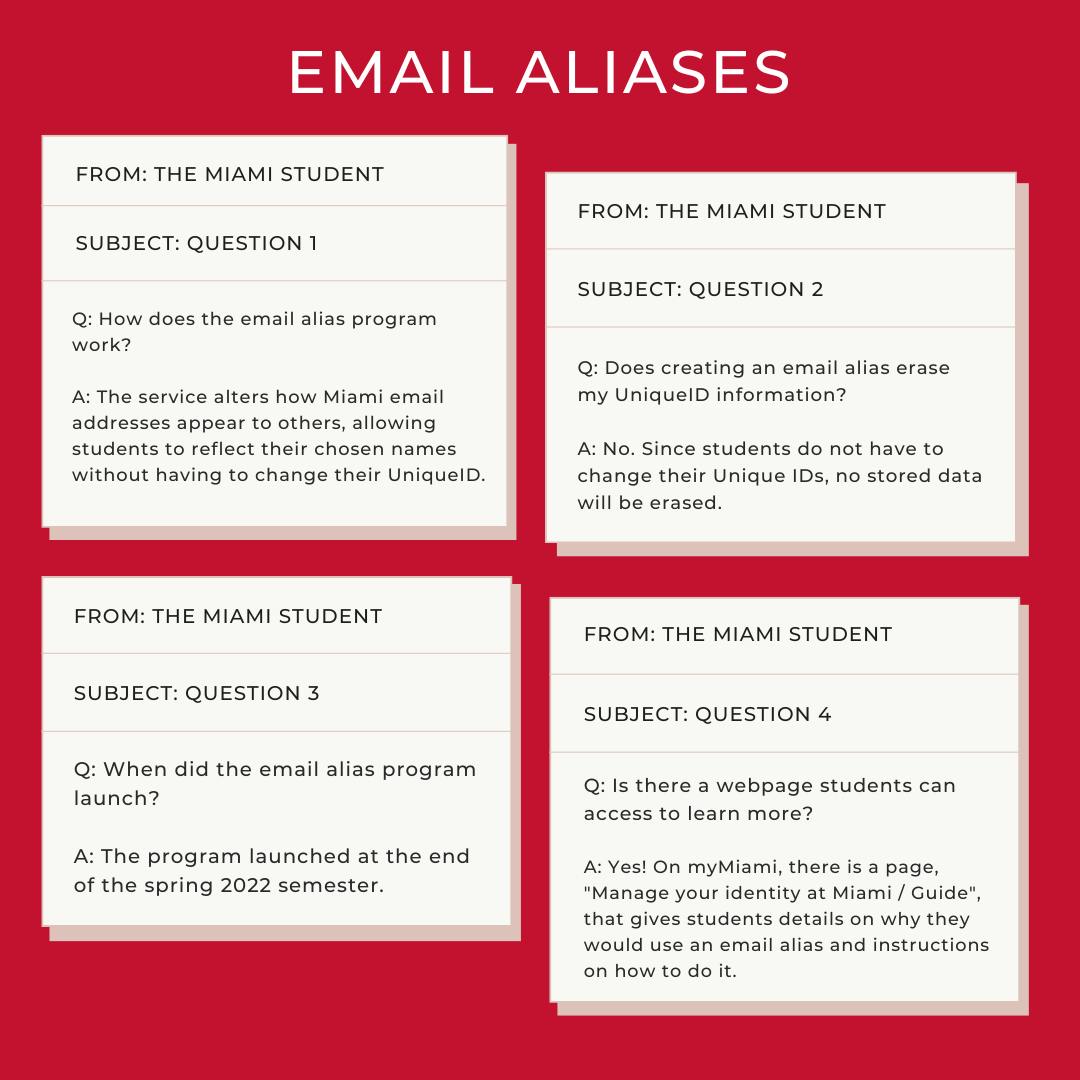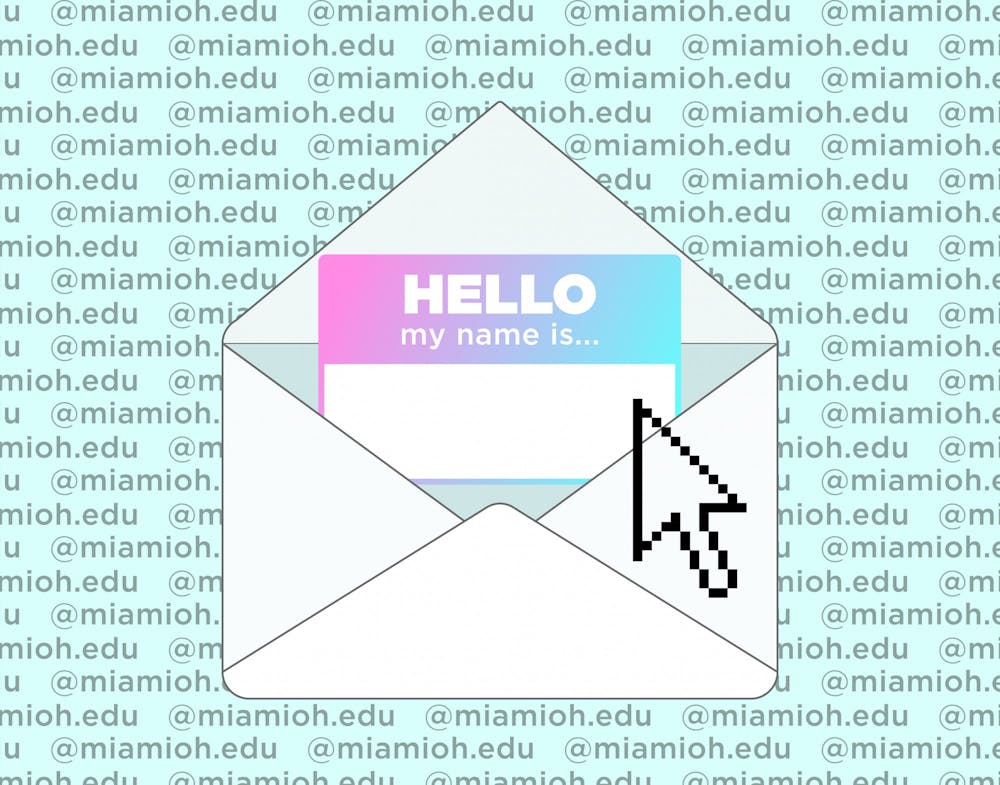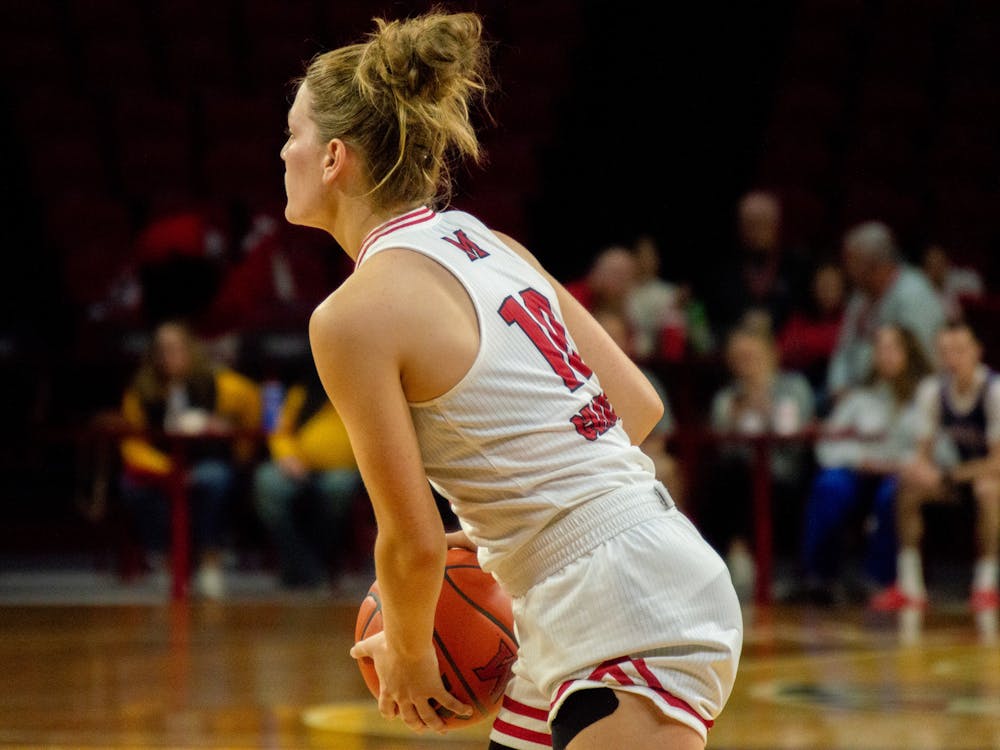When Megan, a transgender student at Miami University who chose to be identified by first name only, wanted her Miami account to better reflect her identity, she discovered she would have to delete her old UniqueID and create a new one, which would erase data stored on her old ID.
Megan, a senior majoring in computer science, relied on her UniqueID for many of her major’s projects. While researching alternatives, Megan discovered Miami’s IT Services had the ability to change how Miami emails are presented without students needing to change their UniqueIDs.
“I basically learned that professors have access to email aliases, and that the university's IT department has the ability to create aliases,” Megan said. “So I was like, ‘Hey, instead of deleting my old email address, would you be able to make an exception for me and just give me an alias?’”
Megan, who is also the president of Spectrum at Miami, became one of the first students to use an email alias, a service that Miami’s IT department introduced this year that allows students to reflect their chosen names without having to change their UniqueID. The service alters how Miami email addresses appear to others.

Since the program launched at the end of the spring 2022 semester, only a dozen or so students have used the email aliases.
April Callis, the associate director of LGBTQ+ initiatives in Miami’s Center for Student Diversity and Inclusion, wrote in an email to The Miami Student that it’s hard to spread the word about the program for such a select group of students.
“[T]he biggest hurdle right now is just getting the word out,” Callis wrote. “[H]ow do you make sure that the 1-2% of students who need to get this info are finding out?”
The email aliases allow transgender and nonbinary students who do not go by their birth name, or deadname, to have an email that accurately reflects their identity.
Although the number of students using email aliases is low compared to Miami’s entire student population, the low registration isn’t concerning to the people who worked to implement the feature.
Enjoy what you're reading?
Signup for our newsletter
Jeffrey Toaddy, senior business analyst for Miami’s IT services, said it was important to make the email aliases for the people who would use them.
“We want to create an environment that communicates that we’re welcoming people,” Toaddy said. “We know that some people are going to use it, and it's going to be really important to some people, but we also want to communicate that it's something that's important to us, and we do it to build that sense of inclusive community.”
Callis said when students ask if they can change their IDs, she’s happy to have a place to direct them now.
“I've had two students this semester email me asking if it was possible to change their email addresses,” Callis wrote, “so it was great to be able to say ‘yes’ and point them to the IT webpage that explains how to do it.”
The webpage gives students details on why they would use an email alias and instructions on how to do it. The page also tells students how to change their UniqueID if they’d rather do that, a more permanent option.
Changing a UniqueID requires students to delete their old ID and get a new physical Miami card. Because the UniqueIDs are connected to so many Miami services, IT generally recommends that students do not change their UniqueIDs except in the case of a legal name change.
Megan says the email aliases can accomplish a similar goal to changing a UniqueID but without the hassle of backing-up the old account.
“For the students who don't want to have to delete all their old accounts and get restarted again, this can be very useful because … for instance, with Google Drive, they don't transfer all your data to your new email accounts,” Megan said. “If you get a new UniqueID, you have to download it and then re-upload it.”
The email aliases allow for a reflection of chosen name for students who have not fully transitioned yet, Callis said.
“[A]llowing students to use email aliases is great, especially for our trans and nonbinary students who might not have legally transitioned, but who have socially transitioned and therefore … go by a name different from their legal name,” Callis wrote. “I know this is part of a larger technology inclusivity program that's been making strides at Miami for a few years, and I'm excited that students now have this as an option.”
Megan said the aliases also help protect students who might be uncomfortable with outing themselves.
“A lot of students have issues with changing their UniqueID where there might be a reason that they also want to present with their old UniqueID, say, a parent is emailing them who doesn't know that they've transitioned,” Megan said. “I'd also say that a huge reason why I wanted an alias in the first place instead of just being like, ‘Oh, my UniqueID’s wrong, whatever,’ was because I was applying for jobs, and I didn't want to be outed when I applied for a job, and I wanted to apply with my Miami email because it's a more professional looking email.”
The people who created the email aliases were part of the Technology Inclusivity Program Team. The group includes leaders from IT Services, Academic Affairs and Student Life.
Toaddy, who also serves as a liaison between IT Services and the other departments at Miami, said the team wanted to create an easy way to demonstrate this name change across multiple platforms.
“We recognized that there's so many different systems, 70 systems or something, across campus where students will log in and they will see their name written in that system,” Toaddy said. “In the best of cases, if you were able to change it, you had to do it independently in each of those different systems and it was just not a good experience for students who wanted to change the name.”




